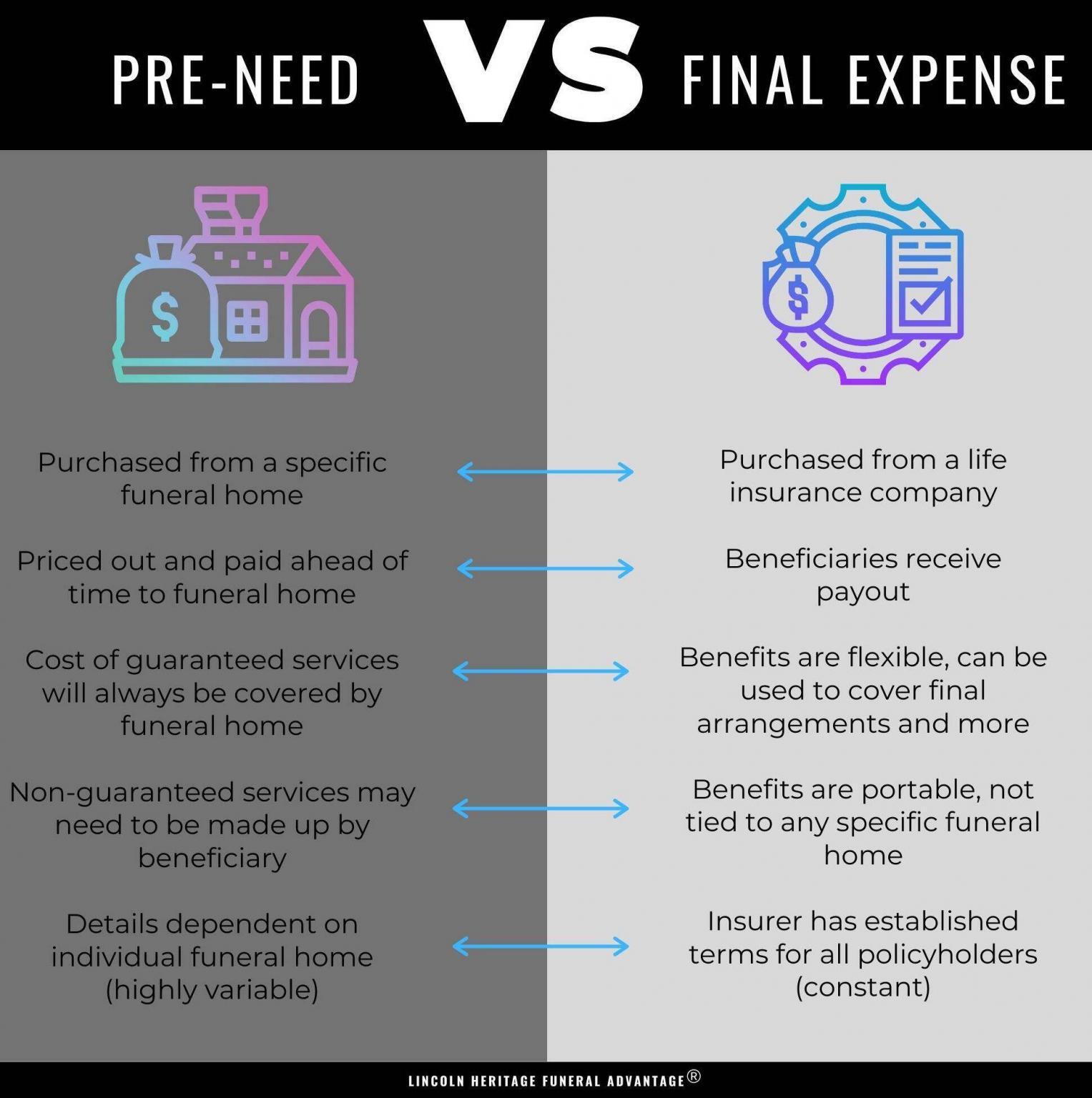

Beneficiary: When purchasing this type of policy, you will name the funeral home as the beneficiary where any funeral arrangements would have been made prior to your passing.Pre-need funeral expense insurance, on the other hand, is more rigid and has some key differences that you should consider before choosing the best funeral insurance policy, including: Death benefit proceeds will be paid out to your named beneficiaries who then can use that money for all final expenses or however they choose. A standard burial policy is very similar to most life insurance plans. There are two types of funeral expense insurance that you can purchase: standard burial insurance or pre-need funeral insurance. Life insurance companies set this rule to prevent sick individuals from purchasing a life insurance plan right before they pass away, thus reducing its risk exposure. During this time, if you passed away, the death benefit would not be paid out and your beneficiary would be refunded the premiums. All guaranteed issue whole life policies strictly require a 24- to 36-month waiting period. However, you may need to undergo a medical exam or fill out a health questionnaire before you are issued your coverage. It is possible to get a burial insurance plan with no waiting period. Can I get a burial insurance policy with no waiting period? Since you may not be able to renew or buy a new term plan, you may want to consider investing in a simplified issue whole life policy, which would provide coverage for the remainder of your life and only require you to fill out a health questionnaire. Say you have had term life insurance to provide financial protection but that policy only has 5 years left and your health is not in preferred status. Other considerations are your current state of health and the length of your current policy. In this case, it would be smart to consider purchasing an additional burial insurance policy in which the death benefit could exclusively be used for your end-of-life expenses and your dependents could use the other plan for their education. You bought this policy with the intention of providing financial relief for your children’s college tuition in case you were to pass away. For example, say you have a term life insurance policy with $200,000 in coverage. Whether or not you need funeral insurance will depend on who you want the death benefit to go to and whether or not you have sufficient coverage. Do I need a funeral plan if I already have life insurance?


With the average cost of a funeral being around $9,000, you will have added flexibility if you want your life insurance to cover other final expenses. You will find that most senior burial insurance plans offer between $2,000 and $50,000 in coverage. Once these costs have been approximated, you should match the expenses to a face value that fits your needs. These typical debts will, unfortunately, be passed onto your next of kin and are often forgotten during the planning process. For example, outstanding credit card debt or loans. After you have gotten a few quotes, you should then consider other expenses that may exist after your passing. When first deciding on a burial insurance plan, you should try to estimate current prices for everything that will be needed for the funeral. Additionally, premiums are locked in, meaning they will not fluctuate.Ĭhoosing the right death benefit for your burial insurance is crucial for getting the best policy possible and not overpaying in premiums. Since burial insurance is a whole life plan, there is no maximum coverage length - you will be covered for as long as you pay your premiums.


 0 kommentar(er)
0 kommentar(er)
